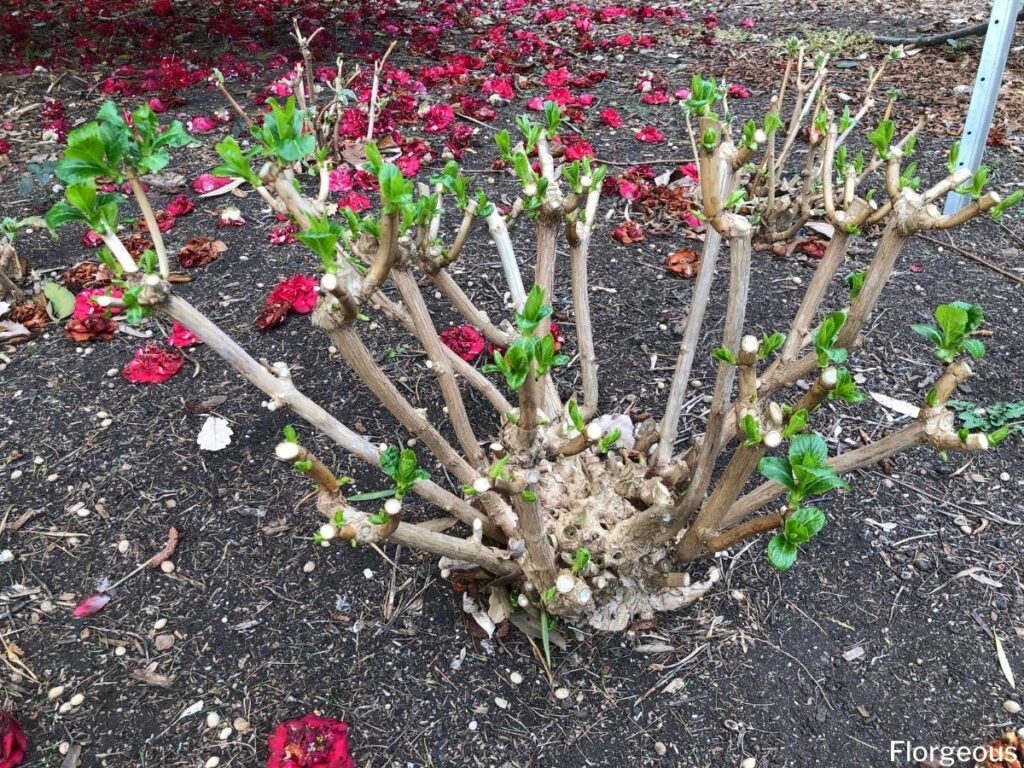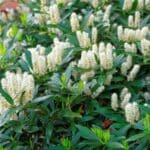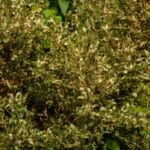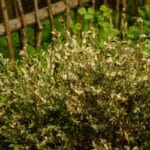If your shrubs aren’t blooming the way you’d like them to, don’t panic – it could just be time to add some hydrangea fertilizer.
There are several kinds of fertilizers you can use on your shrubs depending on their nutritional needs, what kind of soil you have, and what kind of goal you are trying to accomplish.
Here are some tips to help you get it right each and every time.
What Should I Feed My Hydrangea?
What you feed your climbing hydrangeas will be largely dependent on a) what kind of hydrangeas you are growing and b) what your soil nutrient profile already looks like. Understanding this is vital when it comes to taking care of hydrangeas.
It’s important to note that fertilizing in specific ways can actually influence not only the health of your plant but also the color of its blooms. If you want to encourage your hydrangea to produce flowers in blue or pink, you can easily do so by altering the pH of your soil.
Of course, you have to be growing bigleaf (Hydrangea macrophylla) or mountain hydrangea (Hydrangea serrata) shrubs in order to have this effect. These will turn blue when they are growing in acidic soil, while they will turn pink when growing in neutral to alkaline soils. At a pH of 5.5 to 6.5, the flowers can sometimes be purple or even a combination of pink and blue, all on the same plant!
Adjusting pH
If you want to adjust the soil pH to change the color of your flowers, you will need to first get a soil test to determine its acidity or alkalinity. You can add limestone to raise the pH (but be careful about adding too much, as it can cause the foliage to yellow due to iron deficiency) or aluminum sulfate to lower the pH.
Even something as simple as mulching with pine bark or peat can help lower the pH.
Complete Fertilizer
Most flowering shrubs do well with small amounts of a complete fertilizer applied regularly throughout the growing season. You can use a balanced 10-10-10 at a rate of two cups for every 100 square feet, applying once in March, once again in May, and then a third time in July (of course, you can adjust this based on your local growing conditions).
When you fertilize, you don’t need to remove any of the mulch around your plant – but you should water deeply shortly after applying to make sure the fertilizer is dissolved and directed straight into the soil.
If you are growing blue hydrangeas, fertilize with a special formulation for acid-loving plants. This should have a nutrient profile that is low in phosphorus (such as 12-4-8) to encourage the blue flower production. Using a balanced fertilizer won’t hurt our planet, but it’s important to note that phosphorus binds to aluminum in the soil, making it unavailable for the plant to absorb.
If you’re growing other types of hydrangeas bloom, a general fertilizer should do the trick. In hot weather, you can still fertilize – just do so early in the morning and use a water-soluble fertilizer like Miracle Grow.
What Does Epsom Salt Do for Hydrangeas?
Some anecdotal reports indicate that applying Epsom salt around the root zone of hydrangeas can enhance the color of their blossoms and vigor of the leaves. It doesn’t build up in the soil over time, so while it might supply supplemental calcium and magnesium, it probably won’t make a huge difference when you apply it to your plants.
That said, it’s worth a shot! If you decide to apply Epsom salt, do so at a ratio of one tablespoon for every nine square feet. Apply it to the root zone of the plants at two- to four-week intervals.
Fertilizing Potted Plants
When it comes to fertilizing potted hydrangeas, the same tips as above still apply. You can fertilize just as you would any other houseplant. Be sure to keep the root zone moist and fertilize more often, about once a week, by watering with liquid fertilizer like a 20-20-20.
The reason why you need to fertilize more intensively is that containers tend to leach both water and nutrients more quickly than plants grown in the ground.
When to Fertilize Hydrangeas
For blooming hydrangeas, spring is prime time to fertilize! In-ground plants benefit most from three feedings: early spring, early May and late June/early July. Container hydrangeas that overwintered need just a spring feeding with slow-release fertilizer.
If your newly potted hydrangeas have fertilized mix, wait a year before adding more.
Otherwise, feed them slow release fertilizer in late spring or early summer. Remember to stop fertilizing by late July to avoid weak new growth before winter.
Do You Need to Fertilize Hydrangeas?
Technically, fertilizing hydrangeas is not compulsory – these bushes bloom better if they’re a little nutrient-starved. However, you’ll know that your hydrangea flowers need to be fed if you notice that, after bud formation and blooming, yellowing leaves appear in the center of the plant.
This is a sign that they’re hungry for nutrients! To address this, consider using slow-release fertilizer.
Otherwise, follow the tips above to feed your hydrangeas and you should have gorgeous blooms all season long.
FAQs
Do coffee grounds help hydrangeas?
Yes, coffee grounds can help hydrangeas by increasing the acidity of the soil, which is beneficial for blue-flowering varieties. However, they should be used in moderation to avoid over-acidifying the soil.
What fertilizer changes the color of hydrangeas?
Fertilizers containing aluminum sulfate can change the color of hydrangea blooms to blue by increasing soil acidity. For pink blooms, use fertilizers with lower aluminum content or none at all.
What can I put on hydrangeas to make them bloom?
To encourage blooming in hydrangeas, apply a phosphorus-rich fertilizer, such as one with a ratio like 15-30-15, in early spring. Phosphorus promotes flower bud development.
What is the best natural fertilizer for hydrangeas?
Natural fertilizers like compost, well-aged manure, or a balanced organic fertilizer can provide essential nutrients to hydrangeas without the risk of overfeeding. These options also improve soil structure and microbial activity.
See more: Best soil for hydrangea







